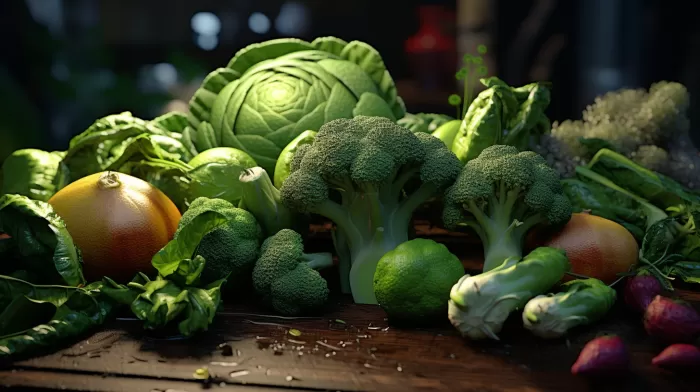Conventional cancer treatments often fail to address the root of the issue, but a natural chemical found in certain vegetables has been shown to halt cancer growth and prevent its recurrence. Cruciferous vegetables, such as broccoli, cauliflower, and Brussels sprouts, contain a compound called phenethyl isothiocyanate (PEITC), which has demonstrated potent anti-cancer properties in laboratory tests.
The Crucial Role of Cancer Stem Cells
Cancer stem cells make up a minuscule part of a tumor but pose a significant threat to health. These cells can grow into new tumors, regenerate treated tumors, and spread cancer throughout the body via the bloodstream. Although detecting cancer stem cells within a tumor is challenging, researchers are becoming more aware of their existence and potential dangers.
According to researcher Moul Dey, the concentrations of PEITC used in laboratory cancer stem cell studies are small enough to prove that daily consumption of cruciferous vegetables should help the body target these rogue cells. Watercress and land cress are particularly rich in the cancer-fighting compounds, making them an essential dietary choice for anyone concerned about cancer, regardless of their personal history with the disease.
Unlocking the Cancer-Fighting Power of Cruciferous Vegetables
To benefit from the cancer-fighting compounds in cruciferous vegetables, you need to release the compounds through chewing or other forms of food processing. Consider incorporating watercress, a slim, crisp member of the mustard family, into your meals by adding it to salads and sandwiches. Its slightly peppery flavor adds an enjoyable kick to a variety of dishes. You can easily find recipe inspiration for incorporating watercress into your meals with a quick search on sites like Epicurious.
Other Healthful Properties of Cruciferous Vegetables
In addition to their tumoricidal abilities, cruciferous vegetables offer numerous other health-promoting benefits. For example, they are:
- Rich in vitamins, minerals, and fiber essential for overall health.
- Packed with antioxidants, which combat oxidative stress and have been linked to reduced inflammation and a lower risk of heart disease.
- A source of glucosinolates, compounds believed to protect against various cancers.
- Linked to weight management, as they are low in calories, high in fiber, and help satiate the appetite.
A Nutritious Way to Combat Cancer
While further studies are needed to confirm the anti-cancer effects of PEITC found in cruciferous vegetables, it’s clear that these nutrient-dense foods offer many health benefits. Fortifying your diet with watercress, broccoli, cauliflower, and Brussels sprouts can aid in the fight against cancer and help maintain overall health. Make a conscious effort to add these powerhouse veggies to your meals, and encourage friends and family to do the same. Together, we can harness the natural power of cruciferous vegetables to make strides in preventing and treating this prevalent disease.
Key Takeaways
- A compound found in cruciferous vegetables called phenethyl isothiocyanate (PEITC) has demonstrated powerful anti-cancer properties.
- Daily consumption of cruciferous vegetables, such as watercress, can help the body target and eliminate cancer stem cells.
- Incorporate watercress into your meals for added flavor and cancer-fighting potential.
- Cruciferous vegetables offer numerous other health-promoting benefits, making them a nutritious addition to your diet.



